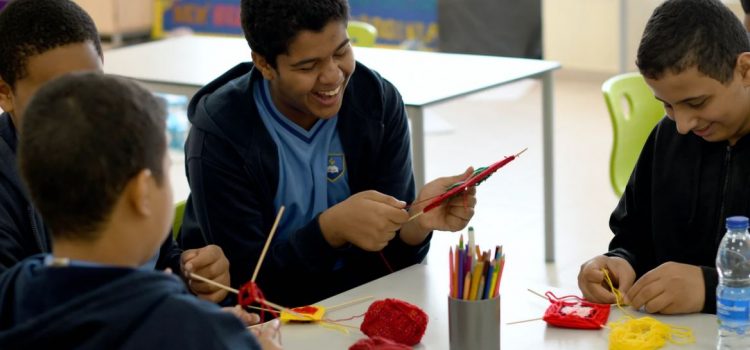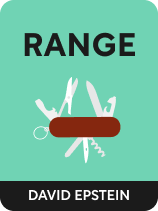

This article is an excerpt from the Shortform book guide to "Range" by David J. Epstein. Shortform has the world's best summaries and analyses of books you should be reading.
Like this article? Sign up for a free trial here .
What is “match quality”? How can you tell if an activity is a good fit for you or not? How does match quality relate to choosing a career?
In psychology, “match quality” refers to whether or not an activity is a good fit for someone. While growing up, it’s important for children and teens to have the freedom to try and experiment with a broad range of activities so they can discover which one has the best match quality for them—this will help them choose a more fulfilling career later in life.
Here is how match quality can help kids choose fulfilling careers.
Discovering if You’re a Good Fit
Epstein emphasizes the importance of what psychologists call “match quality”—whether an activity is a good fit for an individual or not. An activity that’s a good fit for you is one that suits your inherent talents, and more importantly, it’s something you’re excited about pursuing.
Epstein argues that taking time to explore your options is worth it to discover a life direction that suits you. To demonstrate this, he cites a study that compared match quality between education systems in Great Britain. At the time, students in England and Wales were required to pick a specialty before they went to college, while Scotland required its students to explore multiple fields throughout the first two years of college. How did the two groups compare?
English and Welsh students were far more likely to switch career fields than Scots, since they weren’t given the chance to find a good fit earlier in their education. This shows that they were significantly dissatisfied with the careers they picked in high school—enough to sacrifice the years of specialized knowledge they had accumulated. Finding a good fit was more valuable to them than the money and success they could earn with specialized skills. Early exploration allows us to discover activities that are more likely to make us happy.
| Attempts at Broad Learning Outside of Scotland’s Universities Scotland’s emphasis on broad learning isn’t restricted to its universities. Since 2010, students in Scotland aged 3 to 18 have been taught according to the “Curriculum for Excellence,” notable for the freedom given for individual schools to design their own curriculums and its minimal standardized testing. These changes were intended to put greater emphasis on critical thinking rather than test-oriented narrow memorization. However, a 2021 OECD report declared the current implementation of this curriculum a failure, prompting another wave of reform. The main problem, according to the report, is the lack of effective administrative oversight. As we discussed earlier, it’s difficult to standardize an education in non-disciplinary thinking. Simply providing students the freedom to stumble upon subjects with high match quality isn’t enough. |
Extending this idea, Epstein suggests that parents should nurture exploration in their children, allowing them to discover what’s a good fit for themselves. Eager parents try to get their kids to skip the era of exploration by choosing lifelong pursuits for them as early as possible—often a particular musical instrument or sport.
However, an externally-imposed specialization is far less likely to be a good fit than one you choose for yourself. A study of 1,200 musicians showed that kids who had their destinies chosen for them were far more likely to quit later down the road.
Speaking more broadly, the fewer limitations put on children, the better. Epstein cites a study showing that children who grow up to be extremely creative have fewer rules imposed on them at home than average. In these families, parents are more likely to allow their children to make their own decisions and offer judgment after the fact.
| Balancing Exploration With Discipline in Parenting One of the rules in psychologist Jordan Peterson’s 12 Rules for Life advises parents to set strong boundaries for their children and discipline them as necessary to get them to live within those boundaries. In his words, “Do not let your children do anything that makes you dislike them.” His argument is that if a child’s parents don’t teach them to behave within the rules of society, the cold, unforgiving world will eventually cause them far more suffering than early discipline would have. For example, the other kids at school won’t want to be friends with someone who knows nothing about mutual respect. However, Peterson agrees with Epstein that parents shouldn’t set any more rules than they need to. He argues that if disciplinarian parents set too many unnecessary rules, children won’t respect the rules that matter. They shouldn’t prescribe a specific path like violin lessons for their children if they don’t want to take them. Instead, parents should limit themselves to being “proxies for society.” The only necessary restrictions are those which allow children to avoid being rejected by society—which, counterintuitively, allows them to more freely explore the world and develop competence in a good fit of their choice. |

———End of Preview———
Like what you just read? Read the rest of the world's best book summary and analysis of David J. Epstein's "Range" at Shortform .
Here's what you'll find in our full Range summary :
- Why it's better to be proficient in a range of skills rather than becoming a specialist in one
- Why you're never “too late” to pursue something you’re interested in
- Why the nontraditional background of a generalist gives them an edge






